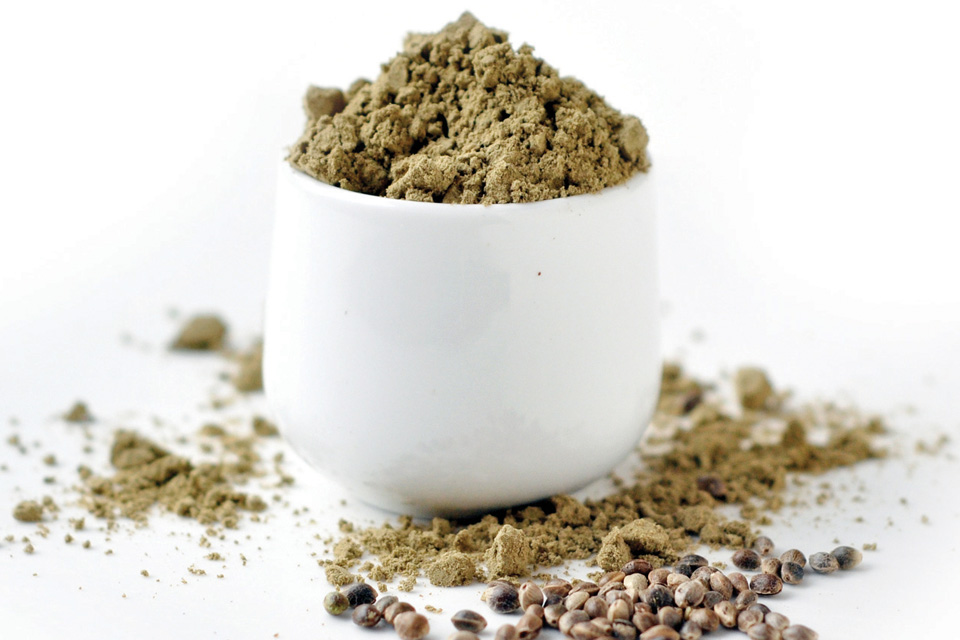5 FASCINATING FOOD FACTS

A general understanding of healthy eating can go a long way, but the details in our diet make a big difference, too.
#5 Hemp, Hemp, Hooray!
Lysine, leucine, we all scream for… amino acids? Okay, well, we should.
Most athletes understand that protein plays a crucial role in building muscle and athletic performance, but rather than focus on how much protein we’re ingesting, today focus is shifting to its quality. A great way to discern protein quality is by investigating its amino acid profile. If amino acids were likened to musicians, then hemp would be South by Southwest and Austin City Limits rolled into one with a who’s who of helpful organic compounds.
In fact, hemp contains every essential amino acid including generous doses of lysine (aids in strengthening skin, hair, and nails) and leucine (a major muscle builder). Hemp’s impressive amino acid makeup ranks No. 5 on this list of fascinating food facts. As an added bonus, hemp packs a powerful punch of essential fatty acids for the brain, making it a fantastic source of plant protein.
Hemp, which is typically consumed in powder or shelled seed form, adds a nutty taste to your smoothies and can be found at several local juice shops.

KEEP READING FOR MORE FOOD FACTS!
#4 The Surprising Bison
Those who prefer their protein sources to have legs should get familiar with another under-the-radar protein source: bison.
While beef gets all the love from red meat consumers, bison is a leaner alternative worth exploring. Considering they look and taste similar, most people are surprised to learn that bison packs more protein than beef and less fat than chicken.
Four ounces of bison top round deliver 2.7 grams of fat compared to 2.9 grams of fat from a chicken breast. Ground bison can often be found at local farmer’s markets and can be prepared in a similar manner to its bovine counterpart.

KEEP READING FOR MORE FOOD FACTS!
#3 Tobacco’s Big Purchase
Some things just don’t mix. Oil and water. Pizza and the gym. And of course, “leg day” and cardio. There’s another awful combination that, for years, was hidden in plain sight: tobacco and food.
When tobacco giant Phillip Morris purchased Kraft Foods in 1988, it began a 19-year marriage creepier than anything even Hugh Hefner could imagine. The union gave a tobacco company (with arguably the worst reputation for harming human health and lying about it to Congress) the keys to the industry with the biggest impact on our health.
Some of our favorite foods have Phillip Morris’ fingerprints all over them. Kraft, the largest food and beverage manufacturer in North America, is an umbrella organization, so those who purchased Post cereals, Jell-O, Nabisco, Planters Nuts, Miracle Whip, Oscar Mayer, Kool-Aid, A-1 steak sauce, or Stove Top stuffing between 1988 and 2007 trusted their health to a company with a rich history of generating profit at the expense of our health.
Just because a product was manufactured by a company with a shady past doesn’t mean it’s unhealthy, but it does demonstrate how we as a society strayed from the “know your farmer” philosophy.

KEEP READING FOR MORE FOOD FACTS!
#2 Illegal ingredients
Processed foods in the United States often contain chemicals deemed unsafe or even illegal in other countries. For instance, Monsanto’s Bovine Growth Hormone (rBST), used in the production of non-organic milk in the U.S., was banned by all European countries as well as Canada in 1999.
Partially hydrogenated oils, once touted by U.S. health authorities as a healthier alternative to natural fats in the margarine versus butter debate, are set to be banned in the U.S. in 2018 due to concerns over heart disease and heart attacks. However, these trans fats can be found in abundance in the U.S. food supply today, and they’ve been nearly eliminated in five European countries via government regulation.
While partially hydrogenated oils and rBST headline the list of common U.S. food chemicals banned in other places, the complete list is lengthy.

KEEP READING FOR MORE FOOD FACTS!
#1 Pomegranate Power
There’s impressive, and then there’s jaw dropping, eye popping almost too good to be true, impressive.
A 2004 study in the Clinical Nutrition Journal found that patients who drink less than two ounces of pomegranate juice a day, significantly reversed atherosclerosis, reduced bad cholesterol, and stabilized blood pressure. Participants in the control group of the study saw the thickness of their carotid arteries increase by 9 percent after one year, increasing the likelihood of heart attack or stroke.
However, those who drank antioxidant-rich pomegranate juice saw a 13 percent decrease after three months, a 22 percent decrease after six months, a 26 percent decrease after nine months, and a whopping 35 percent decrease after 12 months. No pharmaceutical medicine can come close to making that claim.
High cholesterol becomes a problem once it starts to plug arteries, and arteries that are thickened or scarred significantly increase the likelihood of clogging. Cholesterol medications don’t address the artery damage; they focus instead on lowering the amount of cholesterol in blood to help it pass through potentially damaged pipes. The fact that pomegranate juice appears to have statin-like qualities while also addressing atherosclerosis is outstanding. Add to that the blood pressure reducing properties, and you’re left with a truly fascinating food.







